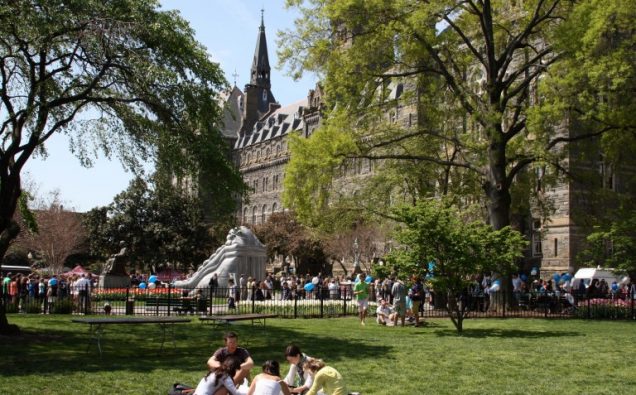
President Donald Trump has proposed an overhaul of the immigration system that seeks to elevate the share of highly skilled immigrants that America takes every year to 57 % from the current 12%.
“The biggest change we make is to increase the proportion of highly skilled immigration from 12 percent to 57 percent, and we’d like to even see if we can go higher,” he said unveiling his immigration plan to a gathering at the White House Rose Garden.
The gathering included Republican lawmakers, representing the political importance of the issue as many on the Capitol Hill have their eyes set on 2020 reelection as does the president himself.
Trump argued that if adopted, his plan would help bring the United States “in line with other countries and make us globally competitive.”
In a marked contrast with his anti-immigrant rhetoric and policy decisions of the last two years, President Trump’s remarks suggested pragmatism that immigration should serve the United States’ best interests as he acknowledged the reality that immigration has been a key pillar of American progress.
“Throughout our history, we have proudly welcomed newcomers to our shores. Out of many people, from many places, we have forged one people and one nation under God, and we’re very proud of it. We share the same home, we share the same destiny, and we pledge allegiance to the same, great American flag. (Applause.)
“Our policies have turbo-charged our economy. Now, we must implement an immigration system that will allow our citizens to prosper for generations to come.”
Starting off with a renewal of his resolve to fix illegal immigration through measures including a physical barrier, Trump termed the current immigration system as “totally dysfunctional.”
“The system will finally be fair, transparent, and promote equality and opportunity for all,” Trump said,.
Yet, Trump did not address some of the pressing issues facing immigrants like the future of more than 11 million undocumented immigrants and Dreamers who were brought here illegally as children and have now an American education and are woven into the fabric.
The United States admits 1.1 million immigrants as permanent legal residents every year, with a five-year path to American citizenship.
But Trump pointed out that turrently, 66 percent of legal immigrants come here on the basis of random chance. Another 21 percent of immigrants are issued either by random lottery, or because they are fortunate enough to be selected for humanitarian relief, he said.
“Random selection is contrary to American values and blocks out many qualified potential immigrants from around the world who have much to contribute. While countless — and you wouldn’t believe how many countries, like Canada, create a clear path for top talent. America does not.
“Under the senseless rules of the current system, we’re not able to give preference to a doctor, a researcher, a student who graduated number one in his class from the finest colleges in the world — anybody. We’re not able to take care of it. We’re not able to make those incredible breakthroughs. If somebody graduates top of their class from the best college, sorry, go back to your country. We want to keep them here.”
Amid a stiff competition between nations for a share of the best and the brightest in the international market, Trump noted that companies are moving offices to other countries because our immigration rules prevent them from retaining highly skilled and even, if I might, totally brilliant people.
“We discriminate against genius. We discriminate against brilliance. We won’t anymore, once we get this passed. And we hope to get it passed as soon as possible. “
He particularly noted that “some of the most skilled students at our world-class universities are going back home because they have no relatives to sponsor them here in the United States. And that’s the only way. We want these exceptional students and workers to stay, and flourish, and thrive in America.”
At the same time, Trump vowed to prioritize the immediate family of new Americans — spouses and children. “The loved ones you choose to build a life with, we prioritize. And we have to do that. They go right to the front of the line. Right to the front of the line, where they should be.”





![By WPPilot (Own work) [CC BY 4.0 (http://creativecommons.org/licenses/by/4.0)], via Wikimedia Commons](https://www.viewsnews.net/wp-content/uploads/2016/04/Statue-of-Liberty-Liberty_Island_photo_D_Ramey_Logan.jpg)











